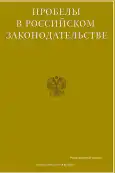Topical Issues of Extremism Prevention in Educational Organizations
- Authors: Mazdogova Z.Z.1
-
Affiliations:
- North Caucasus Institute for Advanced Studies (branch) of the Krasnodar University of the Ministry of Internal Affairs of Russia
- Issue: Vol 15, No 5 (2022)
- Pages: 101-104
- Section: Articles
- URL: https://bakhtiniada.ru/2072-3164/article/view/147598
- ID: 147598
Cite item
Abstract
Keywords
Full Text
##article.viewOnOriginalSite##About the authors
Zaira Zaurovna Mazdogova
North Caucasus Institute for Advanced Studies (branch) of the Krasnodar University of the Ministry of Internal Affairs of Russia
Email: mazdogova76@mail.ru
Cand.Sci.(Politics), teacher of the State and Civil Law Disciplines Department Nalchik, Russia
References
- Putin named terrorism the most dangerous threat // The official website of the Izvestiya newspaper https://iz.ru/1128853/2021-02-24/putin-nazval-terrorizm-samoi-opasnoi-ugrozoi (date of access: 09/01/2021).
- The Constitution of the Russian Federation (adopted by popular vote on 12/12/1993 with amendments approved during the nationwide vote on 07/01/2020) // ConsultantPlus.
- Criminal Code of the Russian Federation of June 13, 1996 No. 63-FZ (as amended on June 11, 2021) // ConsultantPlus.
- Federal Law No. 35-FZ of March 6, 2006 (as amended on May 26, 2021) “On Countering Terrorism” // ConsultantPlus.
- Moiseeva A.K. Recruitment as a threat to national security // Eurasian Law Journal. - 2019. - No. 5. - S. 338-340.
- Moiseeva A.K. The concept of terrorism in the legislation of Russia and Great Britain // Bulletin of the Krasnodar University of the Ministry of Internal Affairs of Russia. - 2020. - No. 1. - S. 17-22.
- Valitova E.R. Advantages and disadvantages of a strategy to counter the ideology of terrorism and extremism in the youth environment: based on an assessment of the opinions of students in the South of Russia // Humanitarian of the South of Russia. - 2020. - V.9, No. 2. - S. 188-202.
- Egorova L.I. Prerequisites for the involvement of adolescents in terrorism: a socio-pedagogical aspect // Modern Pedagogical Education. - 2019. - No. 2. - S. 36-40.
- Kulyagin I.V. On the organization and staffing of activities to counter the ideology of terrorism in the educational environment // Obzor.NTSPTI. - 2021. - No. 1. - S. 17-24.
- Mashekuasheva M.Kh., Mazdagova Z.Z., Makoeva E.R. The concepts of "extremism" and "terrorism" in Russian legislation. Eurasian legal journal. 2021. No. 9 (160). pp. 436-437.
- Nersisyan G.V., Valitova E.R. Educational programs as a positive practice of personnel training in the field of prevention of terrorism and extremism. Model programs of the Ministry of Education and Science of Russia. NCPTI experience // Obzor.NTSPTI. - 2020. - No. 2. - S. 107-111.
- Khusainova S.V., Palekha E.S. An iterative model of psychological support for persons in the category of special attention // Kazan Pedagogical Journal. - 2020. - No. 6. - S. 258-264.
- Churilov S.A. Countering the ideology of terrorism in the educational organization of higher education: a conceptual vision // Obzor.NTSPTI. - 2020. - No. 1. - S. 13-18.
Supplementary files








